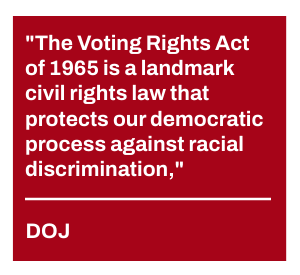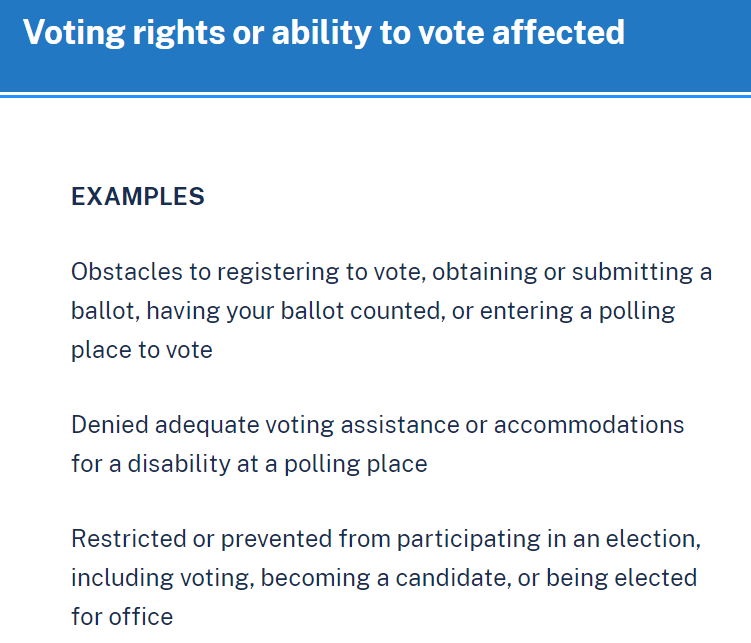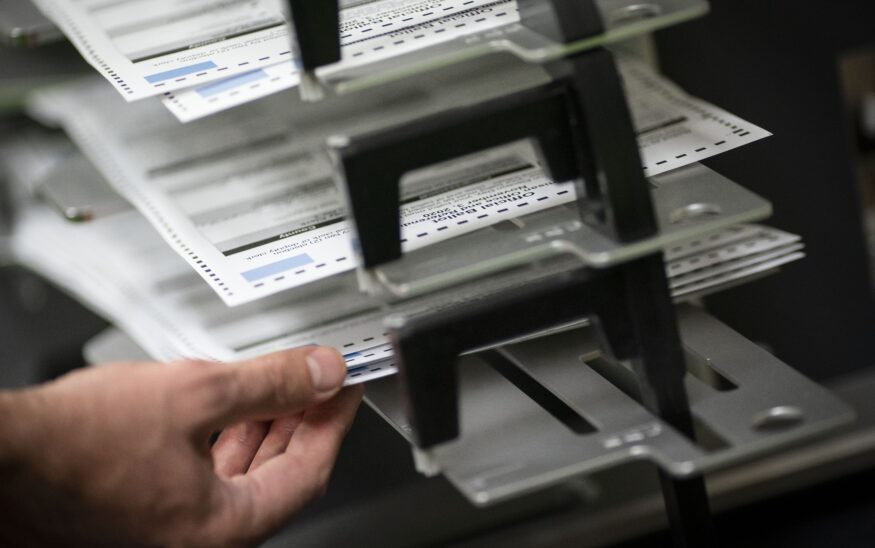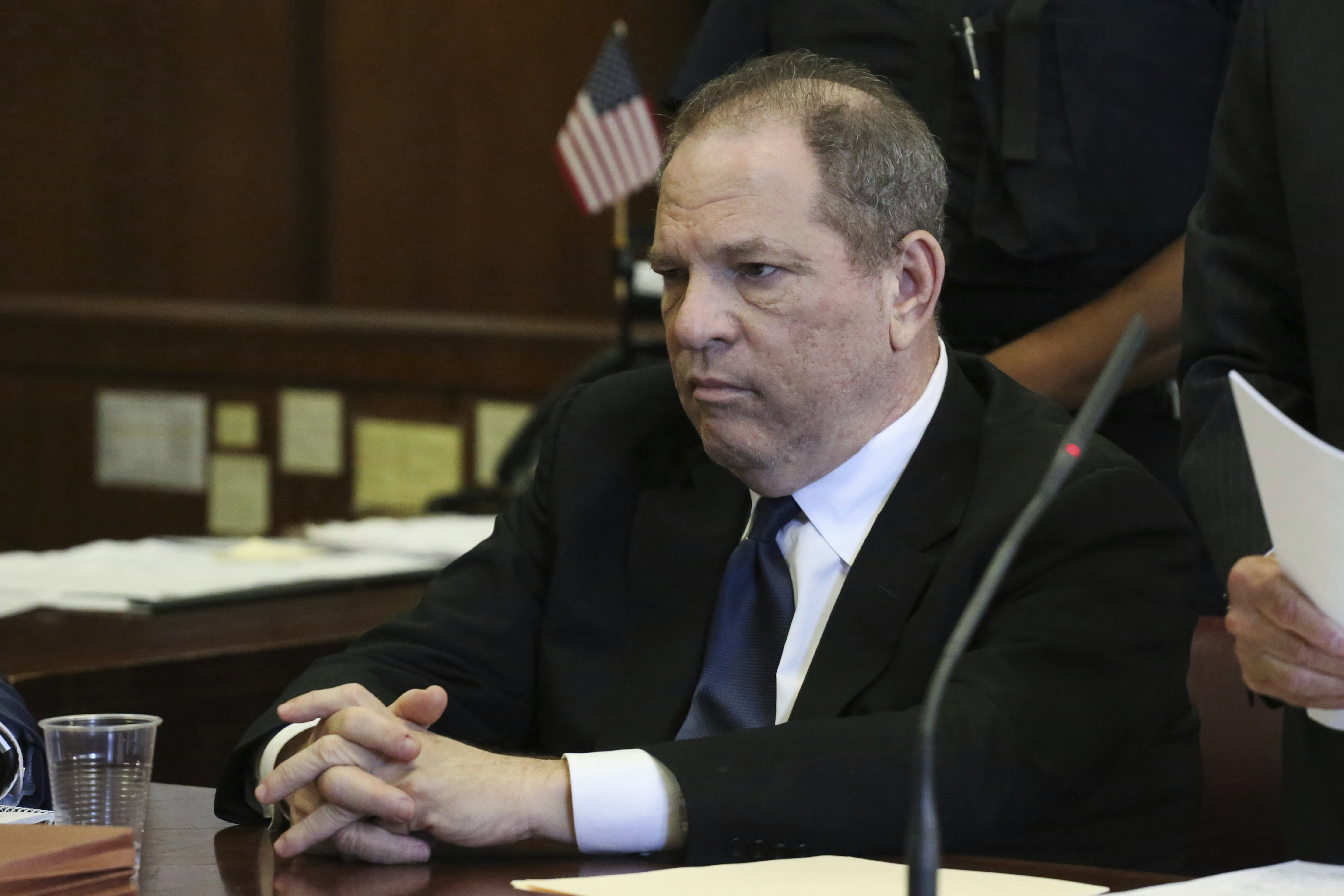Feds monitored election integrity in Milwaukee
By: Steve Schuster, [email protected]//April 3, 2024//
Feds monitored election integrity in Milwaukee
By: Steve Schuster, [email protected]//April 3, 2024//
The Justice Department (DOJ) was closely monitoring Tuesday’s election in the city of Milwaukee “to ensure compliance with federal voting rights laws.”
According to federal officials, The Civil Rights Division of DOJ enforces the federal voting rights laws that protect the rights of all citizens to access the ballot. The division deploys its staff to monitor for compliance with the federal civil rights laws in elections in communities all across the country and Milwaukee was among those cities on April 2, 2024.
During an interview with the Wisconsin Law Journal on Wednesday, Madison Attorney Lester Pines said there is a lot at stake in 2024 elections, noting Wisconsin is a key battleground state.
“Democracy is on the ballot in November — are we going to have it or not?” Pines asked.
According to Pines, Wisconsin minority populations are concentrated in two general areas: Madison and, to a much greater extent, Milwaukee.
“On the Republican side, there is a desire to make sure as few African-American voters in Milwaukee vote,” Pines said. “There is a continued effort by the Republican side to keep those voters from voting through disinformation, misinformation or even the possibility of actual interference of people voting,” Pines added.
According to Pines, the DOJ is sending a strong message of deterrence to anyone trying prevent registered voters from voting.
“The Department of Justice is aware of the potential for intervening with African-American and Latino voters. That is why they have said they will be present and motoring the polling places. That sends a clear message to anyone who is intending to interfere though misinformation, the federal government is watching,” Pines said.
Pines said the Trump campaign is trying to suppress Democratic votes from being counted.
“The Trump campaign is trying to suppress liberal votes by keeping Black and Latino voters from voting. I’m sure the Justice Department can see that,” he said.
According to Pines, historically, local government does not get involved with policing.
“Sheriffs and police in Milwaukee have a lot of other responsibilities than protecting voters. The Federal government has more resources,” Pines said.
In 2016, then-Republican Wisconsin Attorney General Brad Schimel dispatched election monitors around the state, reported the Milwaukee Journal Sentinel.
Assistant attorneys general and Division of Criminal Investigation agents visited 2016 polling places in Brown, Dane, Milwaukee, Outagamie and Rock counties, as well as Eau Claire, Kenosha, La Crosse, Racine, Stevens Point, Waukesha and Wausau.
Former Republican Wisconsin Attorney General J.B. Van Hollen also dispatched election monitors across the state.
The Wisconsin Law Journal did not receive a response from Wisconsin current Attorney General Josh Kaul, asking if his administration has similar practices in place.
Now in April 2024, the federal Milwaukee elections monitoring was routine, said Claire Woodall, executive director of the Milwaukee Election Commission during an interview with the Wisconsin Law Journal on Wednesday.
“I am not aware of any issues yesterday (Tuesday / election day),” said Woodall, who noted the feds were monitoring for civil rights violations and compliance with dual language requirements for Spanish voters at certain polling locations.
Woodall said she has been in close communication with Kathy Block in the Milwaukee City Attorney’s Office.
During an interview with the Wisconsin Law Journal on Wednesday, Block noted in her two decades of working in the city attorney’s office, she has been working closely with the feds to ensure Section 203 of the Voting Rights Act is in compliance.
According to Pines, the overall act was passed “to combat the lingering effects of slavery and segregation.”
“Seeing the Justice Department enforcing the Voting Rights Act is great. That’s in defense of democracy,” Pines said.
According to Block, during both the 2010 and 2020 U.S. Census, the city of Milwaukee has been subject to providing bilingual assistances to voters in the city.
Block noted the Department of Justice conducts a surname analysis to determine which voting wards need assistance.
“Some elections we get a call from the Department of Justice that they are sending a team out. We give them general information about which voting wards require bilingual (Spanish) voter assistance,” Block said.
According to Block, about 25% of time the city attorney’s office will get a call from feds on site at the polling locations regarding an actual concern.
“We did not hear from them (on Election Day),” Block said.
“There were no specific concerns. If there were, that certainly wasn’t shared with me,” Block added, noting that always wasn’t the case.
According to Block, when the feds first started monitoring Milwaukee’s compliance with Section 203, there were detailed reports provided to the city attorney’s office outlining opportunities for improvement with compliance.
“That isn’t the case anymore, we’ve really improved,” she said.
In addition, the DOJ division also deploys federal observers from the Office of Personnel Management, where authorized by federal court order.
When asked by the Wisconsin Law Journal if there was a specific issue to Milwaukee, the Justice Department declined to answer on the record questions or comment further.
However, according to Block, the DOJ has additional resources to look into allegations of Voter Rights Act violations pertaining to other groups.
On Tuesday, April 2, 2024, in Madison, one voting site’s hours were extended by 90 minutes after a court-ordered adjustment in the wake of someone falsely informing voters that no voting was taking place, when in fact it was peak voting hours.
As statewide polls closed at 8 p.m. Tuesday, Madison Wards 60 and 134 were allowed to vote until 9:30 p.m. at Memorial Union, one of UW’s two student unions, reported the Milwaukee Journal Sentinel. Those wards include several student dorms within the lakeshore neighborhood of campus. Apparently someone who was staffed at the front desk informed students that no voting was taking place. Historically, students on the University of Wisconsin-Madison campus vote leaning left.
Pines noted the 2020 Wisconsin litigation over the recount of ballots.
“The recount only impacted two counties, Dane and Milwaukee,” Pines said, noting, “the coincidence is impossible to miss that the recount focused on counties with the greatest minority voters.”
Pines also noted the case was appealed to Wisconsin’s highest court. The Wisconsin Supreme Court ruled the recount was valid and there were no issues with the votes tallied, he said.
The Civil Rights Division’s Voting Section enforces the civil provisions of federal statutes that protect the right to vote, including the Voting Rights Act, the National Voter Registration Act, the Help America Vote Act, the Civil Rights Acts and the Uniformed and Overseas Citizens Absentee Voting Act.
 “The Voting Rights Act of 1965 is a landmark civil rights law that protects our democratic process against racial discrimination,” according to Justice Department guidance obtained by the Wisconsin Law Journal, under Section 2 of the Voting Rights Act, 52 U.S.C. 10301, for redistricting and methods of electing government bodies.
“The Voting Rights Act of 1965 is a landmark civil rights law that protects our democratic process against racial discrimination,” according to Justice Department guidance obtained by the Wisconsin Law Journal, under Section 2 of the Voting Rights Act, 52 U.S.C. 10301, for redistricting and methods of electing government bodies.
One of the key protections of the Voting Rights Act is Section 2, 52 U.S.C. § 10301, which is a permanent nationwide prohibition on voting practices that discriminate on the basis of race, color, or membership in a language minority group (as defined in Sections 4(f)(2) and 14(c)(3) of the Act, 52 U.S.C. §§ 10303(f)(2), 10310(c)(3)).

According to DOJ, when assessing evidence of a possible discriminatory purpose, the Department of Justice is guided by the Supreme Court’s decision in Village of Arlington Heights v. Metropolitan Housing Development Corp., 429 U.S. 252 (1977); see also Brnovich, 141 S. Ct. at 2349.
“The Department of Justice will draw the normal inferences from the foreseeability of a discriminatory impact, and Section 2 does not require proof that one or more government actors are “racist” or bear racial animus,” according to the DOJ.
Federal officials said, “All complaints related to violence, threats of violence, or intimidation at a polling place should be reported first to local police authorities by calling 911.”
In the 2022 general election, the Justice Department monitored compliance with federal voting rights laws in 64 jurisdictions in 24 states, including the cities of Milwaukee and Racine in Wisconsin.
According to Wisconsin election officials, Justice Department investigators were present at various Wisconsin polling stations for several years.
Members of the public are encouraged to send any complaints or comments regarding possible violations of the federal voting rights laws to the Voting Section. This can include complaints or comments about methods of election or districting plans that may violate Section 2 of the Voting Rights Act. This can also include requests for the Department to consider participation in cases as amicus curiae on issues under the federal voting rights laws.
Complaints and comments can be submitted online through the Civil Rights Division’s website portal civilrights.justice.gov.
The Voting Section can also be reached through its toll-free number: 1-800-253-3931.
Legal News
- Newly filed report with federal court seeks Havana Syndrome transparency
- Questions of transparency, leadership responsibility linger over State Bar trust
- Firm demands $4.3M in dispute with Wisconsin client
- Chesebro among those charged with interfering in 2020 election
- Williams-Sonoma must pay almost $3.2 million for violating FTC’s ‘Made in USA’ order
- Harvey Weinstein due back in court, while a key witness weighs whether to testify at a retrial
- Protests erupt on college campuses throughout Midwest, and U.S. over war in Gaza
- Flight attendant indicted in attempt to record minor in airplane bathroom
- Wisconsin attorney loses law license, ordered to pay $16K fine
- Former Wisconsin police officer charged with 5 bestiality felony counts
- Judge reject’s Trump’s bid for a new trial in $83.3 million E. Jean Carroll defamation case
- Dozens of deaths reveal risks of injecting sedatives into people restrained by police
WLJ People
- Power 30 Personal Injury Attorneys – Russell Nicolet
- Power 30 Personal Injury Attorneys – Benjamin Nicolet
- Power 30 Personal Injury Attorneys – Dustin T. Woehl
- Power 30 Personal Injury Attorneys – Katherine Metzger
- Power 30 Personal Injury Attorneys – Joseph Ryan
- Power 30 Personal Injury Attorneys – James M. Ryan
- Power 30 Personal Injury Attorneys – Dana Wachs
- Power 30 Personal Injury Attorneys – Mark L. Thomsen
- Power 30 Personal Injury Attorneys – Matthew Lein
- Power 30 Personal Injury Attorneys – Jeffrey A. Pitman
- Power 30 Personal Injury Attorneys – William Pemberton
- Power 30 Personal Injury Attorneys – Howard S. Sicula












